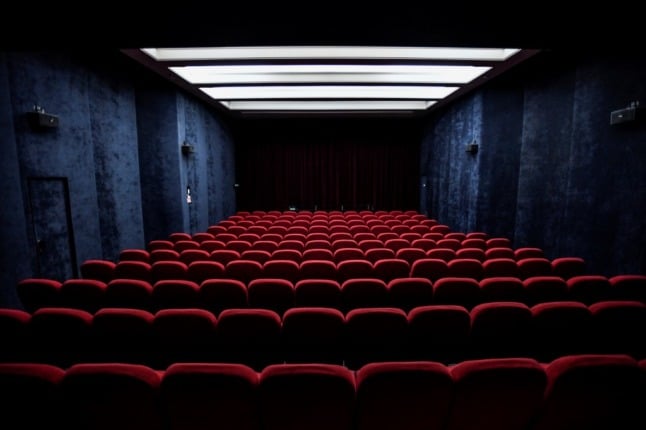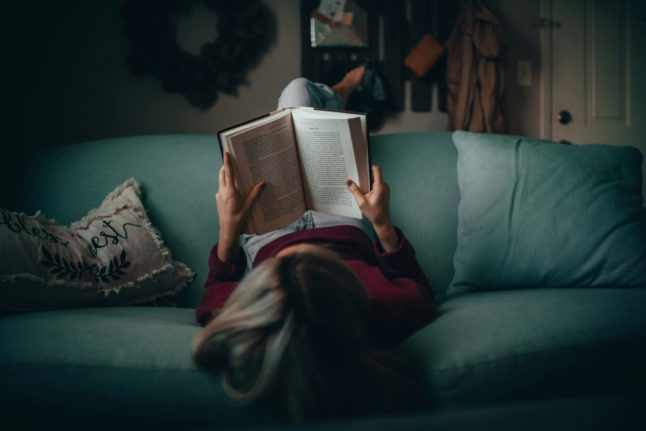The club offers English speakers who may not be fluent in French the chance to enjoy French cinema, by screening new releases and cinema classics with English subtitles to help viewers follow along.
Five films will be screened in October – including one of the greatest French films of all time in honour of one of the pioneers of the New Wave.
Screenwriter and director Alice Winocour’s 2022 movie Revoir Paris (Paris Memories) kicks off the month’s movie calendar on October 7th at L’Entrepôt cinema, Rue Francis de Pressensé, Paris 14.
Traumatised by a terror attack in a Paris bistro three months previously, a woman (four-time César nominee Virginie Efira) decides to investigate her memories and retrace her steps on that fateful day.
The evening begins at 7pm with pre-screening drinks. The film starts at 8pm. Tickets, at €8.50 (€7 concessions), are available online here.
Just over a week later, on October 15th, Le Tigre et le Président (The Vanished President) will be screened at Club de L’Étoile, 14, rue Troyon, Paris.
Jean-Marc Peyrefitte’s debut feature is a based-on-a-true-story comedy that follows the election and period in office of eccentric politician Paul Deschanel, who was President of France from February 18th to September 21st 1920. Jacques Gamblin and André Dussollier are absolutely astonishing in the main roles.
The evening begins at 7pm with pre-screening drinks. The film starts at 8pm. Tickets, which cost €10 (€8 concessions) are available online here
La Page Blanche (Eloïse’s Journey) is the big film on October 20th at Luminor Hôtel de Ville, 20 Rue du Temple, Paris 4.
Sara Giraudeau stars as Eloïse, a woman with no memory of who she is – who sets off on a journey of self-rediscovery, only to discover she does not like what she learns about herself and decides it’s time for a fresh start.
The evening begins at 7pm with pre-screening drinks. The film starts at 8pm. Tickets, which cost €10 (€8 concessions) are available online here.
Head back to Luminor Hôtel de Ville, on October 23rd for a tribute to the late, great Jean-Luc Godard, with a special screening of his iconic feature-length debut A Bout de Souffle (Breathless), which stars Jean-Paul Belmondo and Jean Seberg.
Recognised as one of the greatest movies ever made, A Bout de Souffle follows a wandering criminal (Belmondo) and his American girlfriend (Seberg) as they try to avoid the attentions of the police in Paris.
The evening begins at 7pm with pre-screening drinks. The film starts at 8pm. Tickets, which cost €10 (€8 concessions) are available online here.
Fans of New Wave cinema can also take part in a walking movie tour taking in some of the Paris locations for Breathless, Tous les garçons s’appellent Patrick, Vivre sa vie, and La Chinoise, as well as some of the places the visionary director lived and frequented.
Tickets for the walking tour – which starts at 5.30pm – cost €15 and are available online here.
A wine-tasting session precedes the screening of the final film of the Month, Ivan Calberac’s La Dégustation (The Tasting), at L’Arlequin cinema, Rue de Rennes, Paris 6.
Isabelle Carré stars as a woman with a big heart and no one to share it with – except her cat, her embittered mom, and a group of homeless people for whom she prepares a gourmet dinner at the local church every week.
Then, one day, she meets misanthropic wine merchant Jacques (Bernard Campan). And everything changes.
The film starts at 8pm. Tickets, which cost €10 (€8 concessions) are available online here.
The pre-screening wine-tasting session is €20. Tickets are available here



 Please whitelist us to continue reading.
Please whitelist us to continue reading.
Member comments